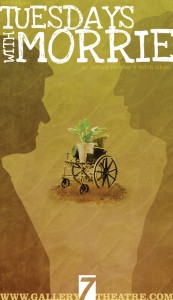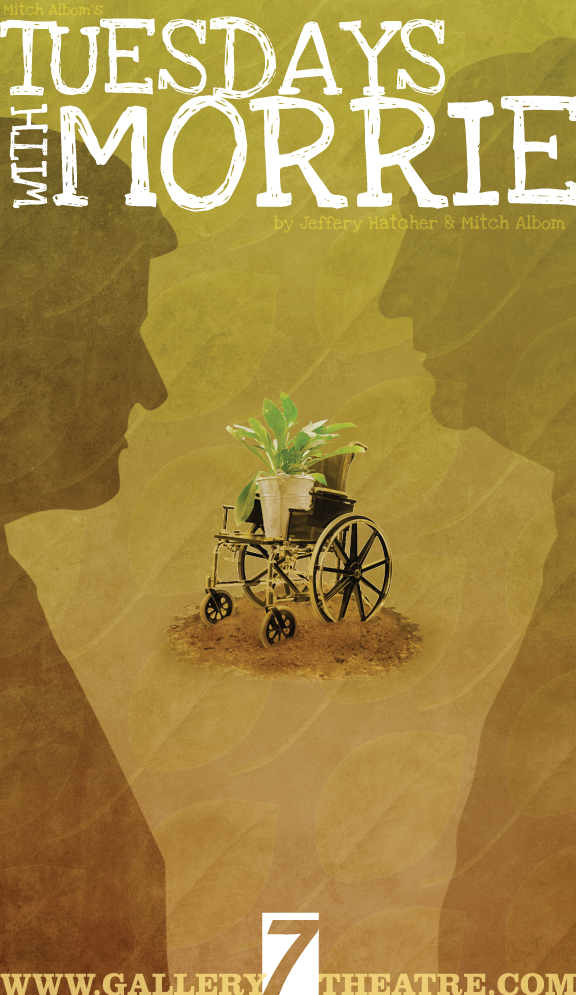By Kyle Huntley (Contributer) – Email
 “I used to be Agnostic, but now I’m not sure” says the eponymous Morrie Schwartz. Tuesdays with Morrie was originally a book written on the true events of Mitch Albom and his professor Morrie Schwartz. Mitch was a student of Schwartz’s in the seventies where they were very close. Morrie would often call Schwartz “coach” because, “everyone needs a coach”. Albom left university and lost touch with Schwartz, only to reconnect with him sixteen years later when he learns that his mentor has been diagnosed with Amyotrophic lateral sclerosis (ASL) or Lou Gehrig’s disease. After a heartfelt talk, Albom promises to visit every Tuesday until he passes away.
“I used to be Agnostic, but now I’m not sure” says the eponymous Morrie Schwartz. Tuesdays with Morrie was originally a book written on the true events of Mitch Albom and his professor Morrie Schwartz. Mitch was a student of Schwartz’s in the seventies where they were very close. Morrie would often call Schwartz “coach” because, “everyone needs a coach”. Albom left university and lost touch with Schwartz, only to reconnect with him sixteen years later when he learns that his mentor has been diagnosed with Amyotrophic lateral sclerosis (ASL) or Lou Gehrig’s disease. After a heartfelt talk, Albom promises to visit every Tuesday until he passes away.
Gallery 7 Theatre group performed an adaptation of the book in which Mitch Albom is played by Ken Hildebrandt and Morrie Schwartz is played by Glen Pinchin, a simple two man play running ninety minutes long. I had little expectation since the venue was small with such a minor cast. However, I was pleasantly surprised. The set was simple, including a small living room, Morrie’s house, and a piano. Pinchin’s Schwartz offered the majority of the comedy for the play, using old style Jewish sarcasm to lighten even the sincerest situations.
The professor and his student engaged in talks about life and death, topics which are often avoided due to their negative connotations. Everything is tackled by Albom’s questions and Schwartz’s humorous responses. As he begins to suffer, Schwartz tells Mitch, “I’ve lost the battle. Someone is wiping my ass.”
Albom’s happiness is eventually challenged during his visits and eventually begins to change his life for the better, in light of Schwartz’s contentment in the face of pain and death.
Hildebrandt and Pinchin were unable to capture the essence of their characters in the first quarter of the play. It seemed like they were acting and going through the motions, but they were not connecting with the people they were portraying. Then roughly around Mitch’s second visit Hildebrandt seemed to step through the threshold of being an actor and became Mitch. His words were more sincere, his movements natural. When he spoke, engaged, or assisted Morrie, it felt like they really were old friends. Glen Pinchin had a similar, sudden change from actor to person. I could feel the change from a spectator of theatre to a ghost observing the last days of a man’s life. The audience disappeared and even when spoken to directly it did not feel like I was watching a play at all.
Overall the play was exquisite. Glen Pinchin’s portrayal of Morrie Schwartz was sublime in his humour and humanity. Morrie Schwartz’s wisdom of how to love life for the little things; to hear and feel the world only with love and forgiveness instead of always trying to get more out it is a message worth the ticket price. “Mitch, the newest things in this room are you and the wheelchair.”


